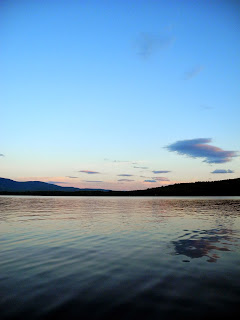Henry Wadsworth Longfellow has stood as one of American’s
most beloved poets. He looked like a salt fresh from the sea with his mane of
white hair and the white beard he never shaved because of the disfiguring burns
to his face he sustained after his wife’s dress caught fire one winter evening.
He was a fireside poet, a poet people quoted in their homes and thought of when
the rain, “clatters along the roofs, Like the tramp of hoofs.” During his life, he was the most popular poet
in America.
Edgar Allan Poe accused him of being an imitator and waged
what his biographer’s called ‘The Longfellow War’. At first, Poe praised
Longfellow, calling him America’s best poet, but soon, he called him, “a
determined imitator and a dextrous adapter of the ideas of other people.” It
has been speculated that Poe did it to boost the readership of the journal of
which he was the editor.
Longfellow has been called an imitator of Tennyson by more
than Poe. I’m not a poet, nor am I an English major, yet, when I read some of
Longfellow’s lines, I know he must have been a genus.
“I remember the black wharves and the ships,
And the sea-tides
tossing free;
And Spanish sailors
with bearded lips,
And the beauty and
mystery of the ships,
And the magic of the
sea.…”
Even if Longfellow was not America’s greatest poet, he was
America’s dearest. Perhaps he did imitate others, but all great men stand on
the shoulders of those who came before. The mathematicians stand on the
shoulders of the mathematicians, the scientists on the scientists. It must be
that poetry has been built upon poetry. Even Poe must have stood on the
shoulders of those who came before; he must have read Jane Austen, Milton and
Shakespeare like the rest of us. Poe was brilliant, but he was very
egotistical; Longfellow on the other hand, was more humble. In the end, Poe was
loved, but Longfellow was loved the most.
When Poe’s short, unhappy life ended on October 7, 1849,
after he was found delirious in the streets of Baltimore, Longfellow mourned
his death.
"What a
melancholy death is that of Mr. Poe,” he wrote, “a man so richly endowed with
genius! I never knew him personally, but have always entertained a high
appreciation of his powers as a prose-writer and a poet... The harshness of his
criticisms, I have never attributed to anything but the irritation of a
sensitive nature, chafed by some indefinite sense of wrong."
~Psyche
~Psyche
*
“The day is done, and the darkness
Falls from the wings of Night,
As a feather is wafted downward
From an eagle in his flight.…”

No comments:
Post a Comment